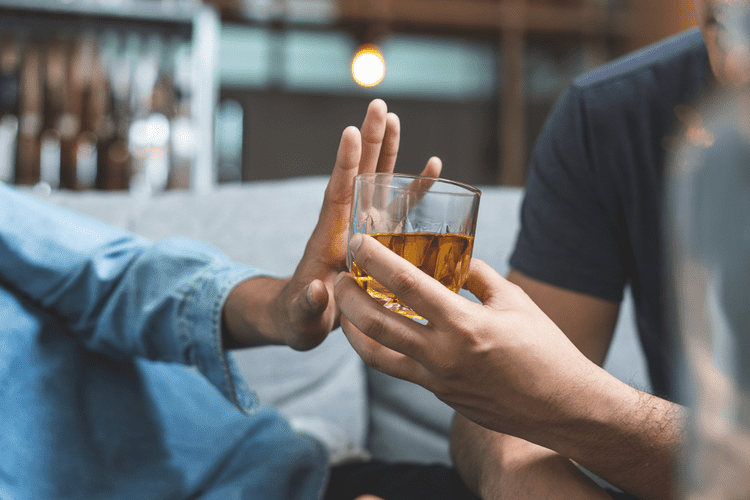Their mind is overloaded with worrying thoughts and fears, even of things that do not present any clear and immediate danger. While alcohol can make your panic attacks worse, alcohol itself doesn’t cause panic attacks on its own. In other words, even if you http://lovelylife.in.ua/astma-mozhet-byit-poleznoy-neozhidannoe-zayavlenie-uchenyih stop drinking alcohol, you are likely still going to have panic attacks – you simply won’t have alcohol triggering them. This means that cutting out alcohol can help – but often further action is required in order to take full control of your condition.

Alcohol’s Effects
Nature or ‘green therapy’ has a proven effect on anxiety levels and calming panic attacks. Maybe it’s just a simple feeling of “something’s not right” or you’re just extra sensitive to everything going on around you? Or perhaps you’re actually paranoid or flat-out scared, and can’t explain why. This phenomenon is known as an anxiety hangover, or more casually, “hangxiety”.
How to Deal with Stress without Alcohol

Instead of alcohol, consider talking to a mental health professional about effective anxiety management options, which may include psychotherapy and medication. For investigators seeking to bridge the multiple disciplines included in this review, the findings concerning stress responses pose challenges and opportunities for future research. For example, can individuals with AUD be distinguished meaningfully based on objective stress reactivity and regulation indicators, and do subjective anxiety symptoms mark or moderate this distinction? For augmenting treatment for AUD, would targeting biological stress reactivity (e.g., hypothalamic pituitary adrenal activation) be more promising than targeting anxiety disorders?
Phobia-Related Disorders
Checking if you are regularly consuming over the recommended weekly limit of 14 units is a good start. However, you may want to cut back completely if alcohol http://www.tvsubtitles.ru/tvshow-77-5.html is impacting your mental well-being through regular panic attacks. As you drink alcohol, it acts as a sedative which can make you feel more at ease.
- The symptoms of low blood glucose include trembling, an elevated heart rate, and feeling anxious or in a low mood.
- For example, add mineral water and a splash of juice to white wine to make a wine spritzer.
- This is why some people can wake up feeling embarrassed about things they said or did.
- This includes options for NHS support, links to charities, helplines and communities, and tips on self-care.
- Because of this, a person will hold on to fear-inducing associations longer and will have a harder time recovering from trauma.
- These feelings can naturally increase overall feelings of anxiety in daily life.
A primer on anxiety disorders
Panic attacks have many variations, but symptoms usually peak within minutes. The fact that all these physiological changes can cause symptoms so similar to those of a panic attack can trick your brain into having a real one. If you’re ready to seek out self-empowerment and defeat dependency on alcohol, then you should learn more about The Alcohol Coach and the life that it can help you achieve. Panic attacks often occur after a night of drinking as withdrawal begins just 5 hours after the last drink s was consumed. Panic attack symptoms are extremely scary, causing many people to experience chest pain, breathlessness, palpitations, vision problems, nausea, diarrhoea, and often a fear that they’re going to die.
Alcohol is a diuretic, which means that it causes excessive expulsion of liquid from the body via urination. For every drink you have, you urinate as much as 50% to 100% more water, and this water is taken from other parts of the body. The panic attacks can also put a strain on your romantic relationships. The fear of having an attack can make it difficult to be intimate with your partner. This can lead to conflict and eventually, the end of the relationship. Dr. Rufus Tony Spann is a nationally certified school psychologist, licensed professional counselor, yoga teacher and reiki master.
- Excessive consumption of alcohol causes dehydration, which can make you feel dizzy and increase your heart rate.
- It’s known as an inhibitory neurotransmitter because it slows down the activity of the nervous system.
- Mr. A had been exhibiting antisocial behaviors, like frequent fights and incidents of shoplifting, since puberty, and he had a history of inhalant abuse between the ages of 17 and 20 years.
- Other people may experience severe symptoms that require professional intervention.
- This is a slippery slope that can easily spiral into a devastating addiction, make your panic attacks and anxiety worse in the long term.
“Hangxiety” describes the regret, worry, and levels of anxiety felt after a night of heavy drinking. While the term may be informal, the science isn’t—there’s plenty of data to explain this experience. A person with an anxiety disorder is three times more likely to develop an alcohol use disorder at some point in their life compared to someone who has never been diagnosed with anxiety. Other researchers have proposed a genetic link influencing a person’s anxiety level and alcohol consumption.
Why People Use Alcohol for Anxiety

Alcohol withdrawal panic attacks are not unusual, as the brain becomes overstimulated when the alcohol use is stopped. One of the best ways to know if you might have a panic attack from quitting alcohol is to undergo an alcohol use assessment. If you have concerns about your drinking, then it is better to be safe and discuss your worries with someone who understands alcohol use disorders.
When people use alcohol to relieve symptoms of a mental health condition, it can quickly become a “crutch.” In some cases, a person who drinks alcohol to relieve feelings of anxiety might end up drinking more http://pushclouds.cc/category/21-office-school-supplies because they expect alcohol to provide a certain amount of relief from their anxiety symptoms. However, over time or in excess amounts, drinking alcohol can lead to increased levels of anxiety and stress.

